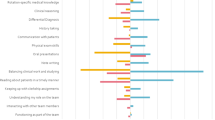Abstract
Self-assessments provide students with an opportunity to test their understanding of content covered in their curriculum and help them prepare for subsequent assessments. Perhaps more importantly, self-assessments may also serve a pedagogical purpose. Research on test-enhanced learning suggests that material is remembered better if one or more tests are included as part of the learning strategy. The NBME® Clinical Science Mastery Series (CSMS) are web administered self-assessments built to the same content specifications as the NBME clinical science subject examinations that provide students with an opportunity to become familiar with content, format, and pacing. This study examined the relationship between performance on CSMS and on the corresponding clinical science subject examinations. The study included students from United States and Canadian medical schools who took CSMS under standard- or self-paced conditions prior to sitting for the corresponding subject examination for the first time. Linear regression analyses investigated the relationship between performance on CSMS and on the corresponding subject examination. CSMS scores explained 29 %–44 % of the variation in first subject examination scores when taken in standard-paced mode and 25 %–33 % when taken in self-paced mode; the relationship was somewhat different for the two pacing groups for most of the subjects as indicated by statistically different sets of regression parameters for the models based on each group. Results confirm that performance on the CSMS self-assessments and clinical science subject examinations is related. Usage patterns suggest that students may be using the CSMS as a learning tool and as an instrument to gauge their clinical science knowledge.

Similar content being viewed by others
References
McMillan J, Hearn J. Student self-assessment: the key to stronger student motivation and higher achievement. Educational Horizons. 2008;87(1):40–9.
Szpunar K, McDermott K, Roediger H. Testing during study insulates against the buildup of proactive interference. J Exp Psychol Learn Mem Cogn. 2008;34(6):1392–9.
Rohrer D, Taylor K, Sholar B. Tests enhance the transfer of learning. J Exp Psychol Learn Mem Cogn. 2010;36:233–9.
Butler A. Repeated testing produces superior transfer of learning relative to repeated studying. J Exp Psychol Learn Mem Cogn. 2010;36(5):1118–33.
National Board of Medical Examiners. Web-based self-assessment services. Philadelphia: National Board of Medical Examiners; 2013.
Sawhill A, Butler A, Ripkey D, Swanson D, Subhiyah R, Thelman J, Walsh W, Holtzman K, Angelucci K. Using the NBME self-assessments to project performance on USMLE step 1 and step 2: impact of test administration issues. Acad Med. 2004;79(10 Suppl):S55–7.
Morrison C, Ross L, Fogle T, Butler A, Miller J, Dillon G. Relationship between performance on the NBME comprehensive basic sciences self-assessment and USMLE step 1 for U.S. and Canadian medical schools students. Acad Med. 2010;85(10 Suppl):S98–101.
Morrison C, Ross L, Sample L, Butler A. Relationship between performance on the NBME comprehensive clinical science self-assessment and USMLE step 2 clinical knowledge for USMGs and IMGs. Teaching and Learning in Medicine: An International Journal. 2014;26(4):373–8.
Zhao X, Oppler S, Dunleavy D, Kroopnick M. Validity of four approaches of using repeaters’ MCAT scores in medical school admissions to predict USMLE step 1 total scores. Acad Med. 2010;85(10 Suppl):S64–7.
Author information
Authors and Affiliations
Corresponding author
Rights and permissions
About this article
Cite this article
Morrison, C., Smith, L., Ross, L. et al. Learning through Self-Assessment: Investigating the Relationship between Performance on the NBME® Clinical Science Mastery Series Self-Assessments and Clinical Science Subject Examinations. Med.Sci.Educ. 26, 665–672 (2016). https://doi.org/10.1007/s40670-016-0330-z
Published:
Issue Date:
DOI: https://doi.org/10.1007/s40670-016-0330-z




